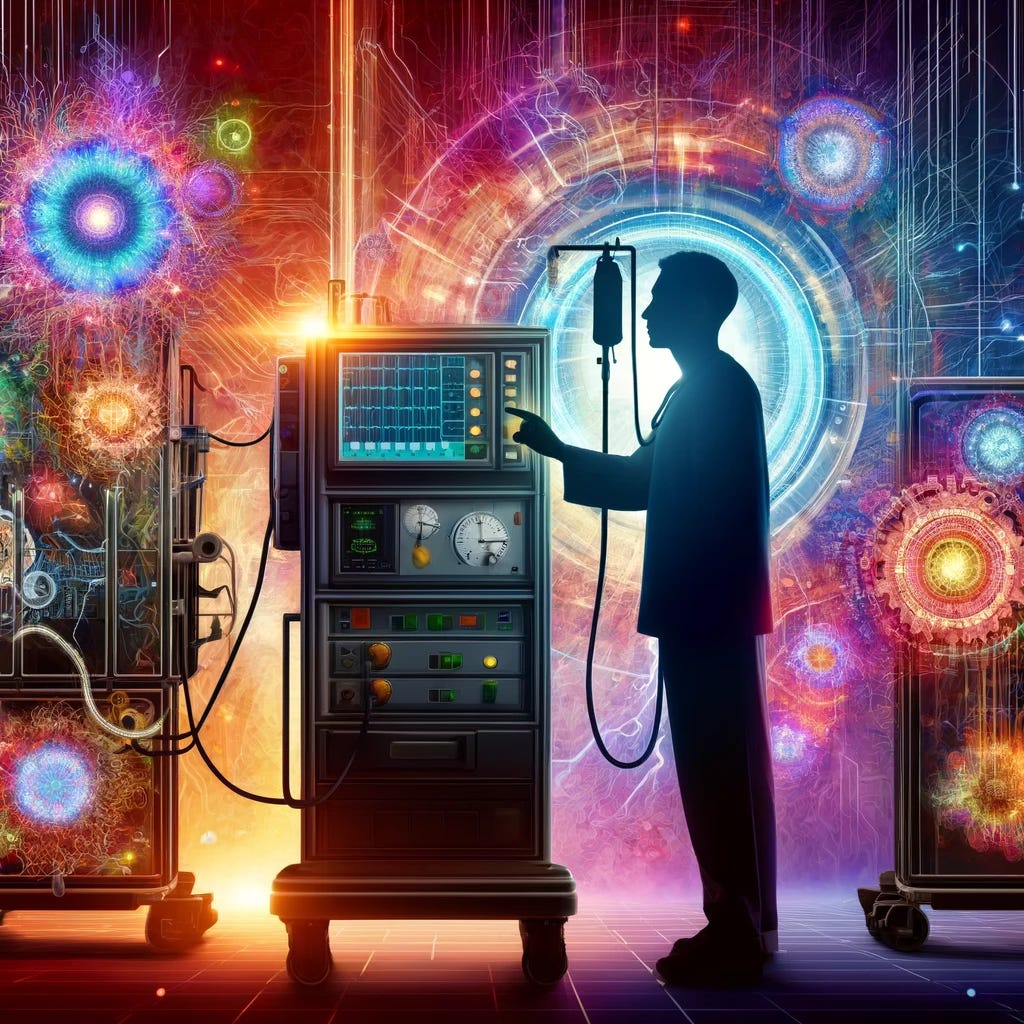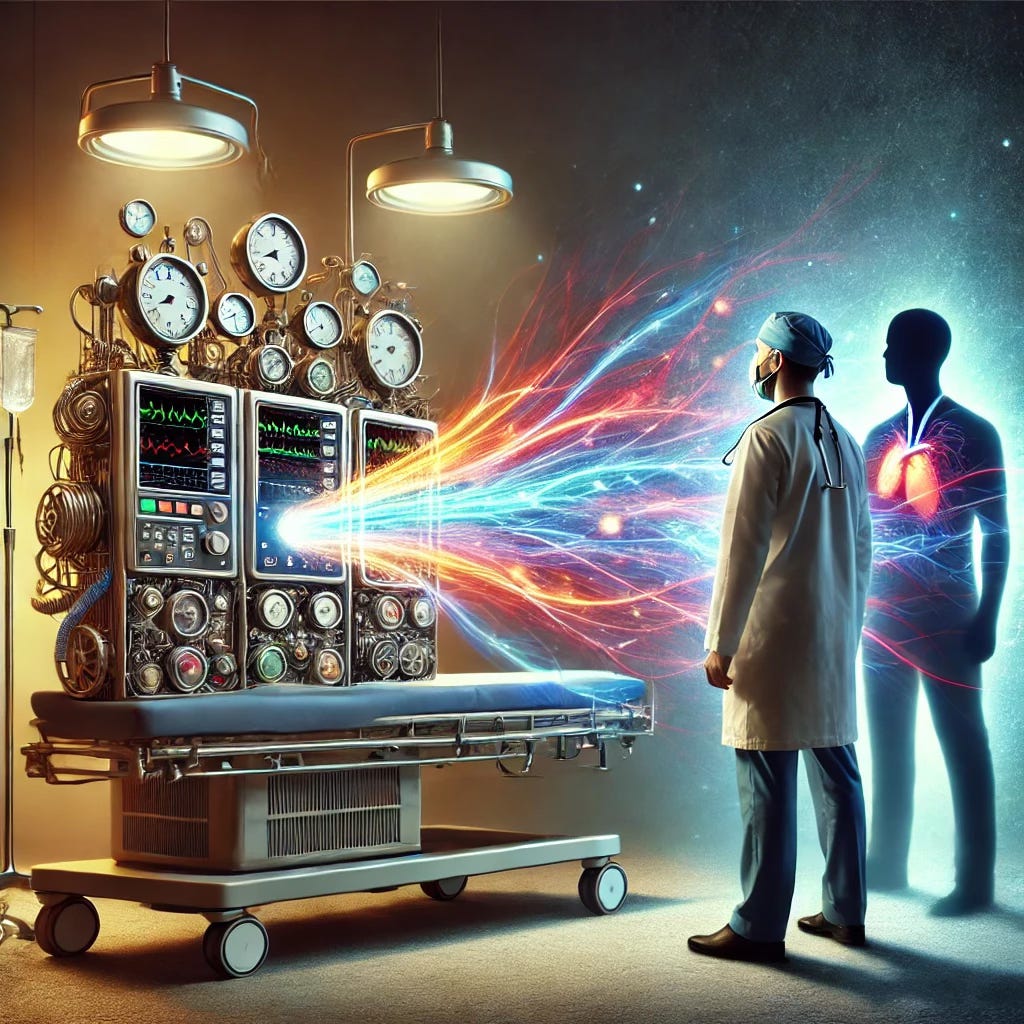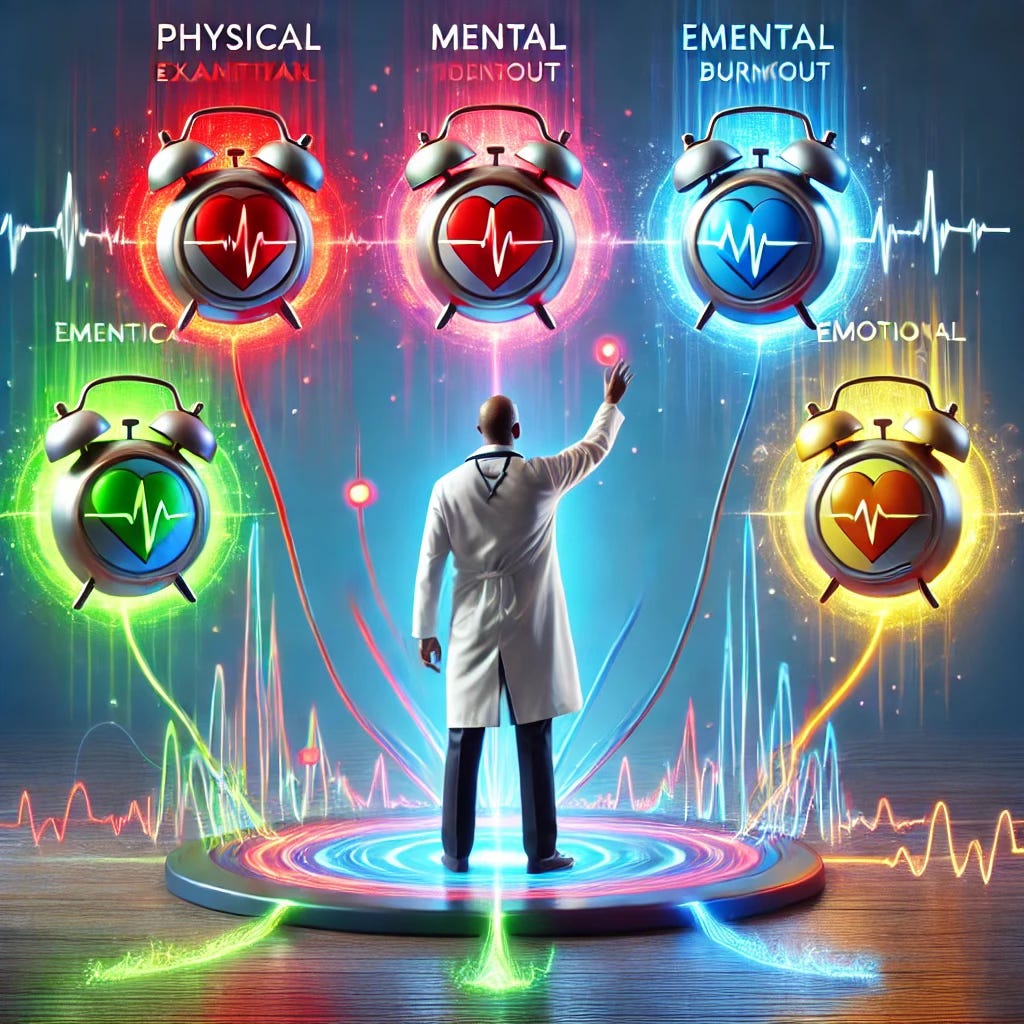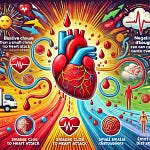Hey Superdoc community ,
In the ICU, machines are our constant companions—ventilators, ultrasound devices, dialysis machines—all of them vital to saving lives. But here’s the thing: if we don’t fully understand these machines, how can we use them effectively? How can we optimize their functions and troubleshoot issues when things go wrong?
Over time, I’ve come to realize that the same principle applies to us as human beings. We are the most sophisticated machines in existence, yet how many of us take the time to truly understand ourselves? In this blog, I’m going to share my journey of learning how to master the machines in the ICU and how that process opened my eyes to the importance of mastering myself.
By the end, I hope you’ll feel inspired to start getting to know your own “machine” and optimize it for success.
Facing Resistance: Learning the ICU Machines
If you’ve ever encountered a new piece of technology or machinery, you probably know what I’m talking about. There’s always this initial resistance—this voice inside that says, “Do I really need to learn this?” It’s easy to shy away from the effort, the time commitment, and the challenge of stepping into the unknown.
For me, that resistance came during my internal medicine residency. I’d often find myself working with ventilators but without fully understanding how they functioned. I’d follow textbook guidelines, input the right settings—tidal volume, respiratory rate, FiO2—and hope for the best. But when alarms started ringing, I was lost. I didn’t know what the machine was trying to tell me. The complexity of the ventilator, with its multiple modes and settings, was overwhelming. And I wasn’t the only one.
But the helplessness I felt stuck with me. I knew I couldn’t continue this way. I needed to know more. This moment of discomfort—the realization that I didn’t fully understand the tools I was using—pushed me to dive deeper into learning.
As I transitioned into critical care medicine, I committed to learning every aspect of the ventilator. I studied the modes, the settings, the alarms. I learned which mode to use for which condition, how to troubleshoot, and how to personalize the settings to meet each patient’s needs.
Learning these machines wasn’t easy, but it made my life so much simpler. More importantly, it allowed me to give my patients the care they truly needed.
The Turning Point: Understanding Yourself as the Ultimate Machine
As I began mastering these ICU machines, I had a realization. Just as the ventilators had their own settings and modes, I too had my own “modes” as a person. I had different roles to play in life—a doctor, a teacher, a husband, a son—and each role required its own set of skills, emotions, and mindsets. And just like the ventilator, I had my own alarms, my own feedback systems, telling me when something was wrong.
This sparked a question within me: How well do I really know myself?
In the ICU, knowing the machine meant I could act swiftly and effectively. Could the same be true in my own life? Could understanding myself, my own physical, mental, and emotional settings, help me optimize my performance?
I started to explore. Physically, what made me feel energized? Mentally, what gave me clarity and focus? Emotionally, what made me feel balanced and grounded? The more I explored, the more I realized that self-awareness was the key to optimization.
Optimizing the Human Machine: A Step-by-Step Process
It didn’t happen overnight. Optimizing my life—physically, mentally, and emotionally—was a gradual process. I started with the physical aspects. I looked at my diet, exercise, and sleep patterns. What foods made me feel sluggish? What workouts gave me more energy? What did my body need to function at its best?
Then came mental clarity. I turned to meditation, visualization, and mindfulness practices to help me stay grounded and focused. These weren’t just exercises—they became a way to clear out the mental clutter and keep my mind sharp, even during the most stressful days in the ICU.
Lastly, I worked on emotional awareness. I started asking myself, 'What emotions am I holding on to? What am I suppressing or ignoring?' I realized that negative emotions, like frustration or anger, were my body’s way of sending alarms. These emotions weren’t to be suppressed—they were feedback systems, just like the alarms on the ventilator, telling me something needed attention.
Over time, I learned how to release these emotions in healthy ways and nurture positive states like gratitude and compassion. This shift had a profound impact—not just on my work in the ICU but on my personal life, my relationships, and my overall sense of well-being.
The Alarms in Life: Are You Listening?
Here’s the thing: in the ICU, alarms are there for a reason. They tell us when something is wrong. If you don’t pay attention to them, you risk missing a critical issue. The same goes for life. We all have alarms—whether it’s physical exhaustion, mental burnout, or emotional stress—but how often do we ignore them?
We’re taught to power through, to keep pushing forward. But in doing so, we’re ignoring the very feedback systems that are there to help us. Just like with a ventilator, these alarms are an opportunity to intervene, to troubleshoot, and to adjust the settings of our lives.
So I want you to ask yourself: What alarms are going off in your life right now? Are you listening to them, or are you pushing them aside?
Take a moment to reflect on where you’re feeling off-balance. Is it your physical health? Your mental clarity? Your emotional state? What adjustments can you make to optimize these areas of your life?
Knowing Your Modes: Personalizing Your Life’s Settings!
Just like the different modes on a ventilator—pressure control, volume control, and so on—we have different “modes” for the various roles we play in life. As a doctor, I need to be patient and empathetic. As a teacher, I need to be clear and communicative. As a husband and a son, I need to show love and support.
Each role requires its own settings, its own way of being. But if you don’t take the time to understand these modes, you’re likely to use the wrong one at the wrong time. And that’s when things start to fall apart.
I encourage you to think about the roles you play in your life. What are the different “modes” you need to be in? Are you using the right settings for each situation? And if not, what adjustments can you make to bring more balance, ease, and success into your life?
Mastering the Human Machine
At the end of the day, mastering the machine—whether it’s a ventilator in the ICU or your own inner life—comes down to awareness and optimization. It’s about understanding the modes, the alarms, and the settings that make you who you are. It’s about taking the time to troubleshoot when something isn’t working and fine-tuning your life for success.
I invite you to start this journey today. Begin with awareness. Take a close look at the areas of your life that need optimizing—physically, mentally, emotionally—and start making small, deliberate changes. Over time, you’ll find that, just like with the ventilator, the more you know, the more you can achieve.
Thank you for joining me on this journey of introspection. Let’s keep pushing ourselves to master the most important machine of all—ourselves. Do comment on times when you where functioning at optimal best and how your physical , mental and emotional energies were?
Stay Balanced , stay healthy and master your machine.
Dr.Krishna Bharath,MD




















Share this post